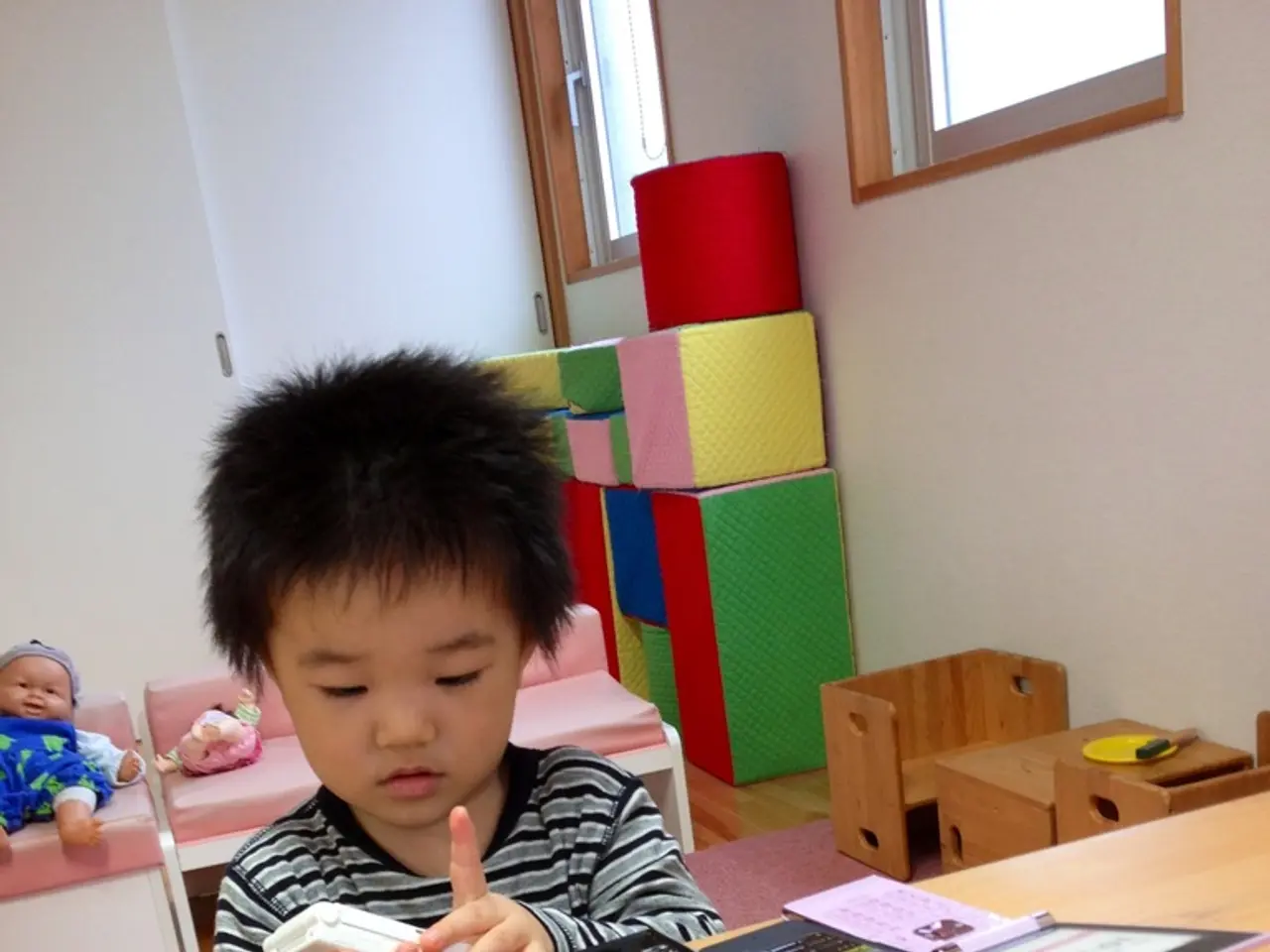Excessive screen time for children during summer vacations can become routine, but it's important to avoid this habit.
Managing Children's Screen Time During Summer: A Balanced Approach
As the summer holidays approach, parents may find themselves grappling with the challenge of managing their children's screen time. The University of Kentucky offers advice to ensure a healthy balance, drawing on recommendations from the American Academy of Pediatrics (AAP).
According to the AAP, a balanced approach to screen time is crucial, and it should be tailored to a child's age. For instance, babies should avoid screens except for occasional video chats with loved ones. For children under 18 months, screen time should be limited to video chats only. Between 18-24 months, if screen use is introduced, it should be with high-quality educational content and co-viewed with a caregiver.
For children aged 2 to 5 years, screen time should be limited to about an hour per day of high-quality, educational, non-violent, and socially positive content. Parents should co-view to support learning and engagement. For children 6 years and older, consistent limits should be set to ensure that screen time doesn't replace sleep, exercise, or in-person interactions.
Families are encouraged to develop media plans, involving everyone to establish clear guidelines about screen time limits, tech-free zones, and appropriate content. The aim is not to eliminate screens but to integrate their use thoughtfully in a child’s daily routine, supporting development, learning, and well-being.
Dr. Angela Houchin, a pediatrician at Kentucky Children's Hospital, emphasizes the importance of quality, context, and moderation in screen time. Fast-moving or violent shows, apps with ads and in-app purchases may not be healthy for children. Too much screen time can lead to problems such as sleep disturbances, behavior issues, and exposure to inappropriate content.
However, screen time can also offer opportunities for learning and creativity. Discussing what children are playing or watching can turn screen time into a learning opportunity. Co-viewing and talking about screen content can help children understand and become smart media users.
During the summer, the AAP encourages a balance of digital and real-world experiences. Letting children experience boredom can foster independence, problem-solving skills, and discovery of new interests. A little planning, conversation, and creativity can help make summer downtime productive and memorable. Encouraging a balance of digital and real-world experiences can help children build lifelong skills.
In conclusion, managing children's screen time during summer requires a balanced approach, taking into account a child's age, the quality of content, and the context in which screen time is used. By setting clear guidelines, being good role models, and encouraging a balance of digital and real-world experiences, parents can help their children enjoy a healthy and productive summer.
[1] American Academy of Pediatrics. (2016). Media and Children. Pediatrics. [2] American Academy of Pediatrics. (2020). Children, Adolescents, and COVID-19. Pediatrics. [3] American Academy of Pediatrics. (2021). Council on Communications and Media. Media and Children's Health. Pediatrics. [4] American Academy of Pediatrics. (2016). Media Education for Families. HealthyChildren.org. [5] American Academy of Pediatrics. (2019). Media Use in School-Aged Children and Adolescents. Pediatrics.
- Despite the advantages of digital learning, it's essential to prioritize health-and-wellness, fitness-and-exercise, and mental-health in a child's lifestyle during summer, to ensure they maintain a balanced approach to their lifestyle.
- In addition to setting screen time limits, families can promote home-and-garden activities and foster relationship-building for a well-rounded summer experience, improving family-dynamics.
- During the summer, our attention should not only focus on managing children's screen time but also on providing them with valuable educational experiences outside the digital world, like reading books and participating in science projects.
- To create a healthy environment for their children, parents might consider implementing a media plan that covers not only screen time but also integrated components like education, fitness, and mental-health, as part of their overall lifestyle.
- As our society evolves, it's crucial to continue exploring the impact of digital devices on children's learning and development, ensuring that we provide them with opportunities to thrive in their education, lifestyle, and relationships, with a proper balance of screen time and real-world experiences.




